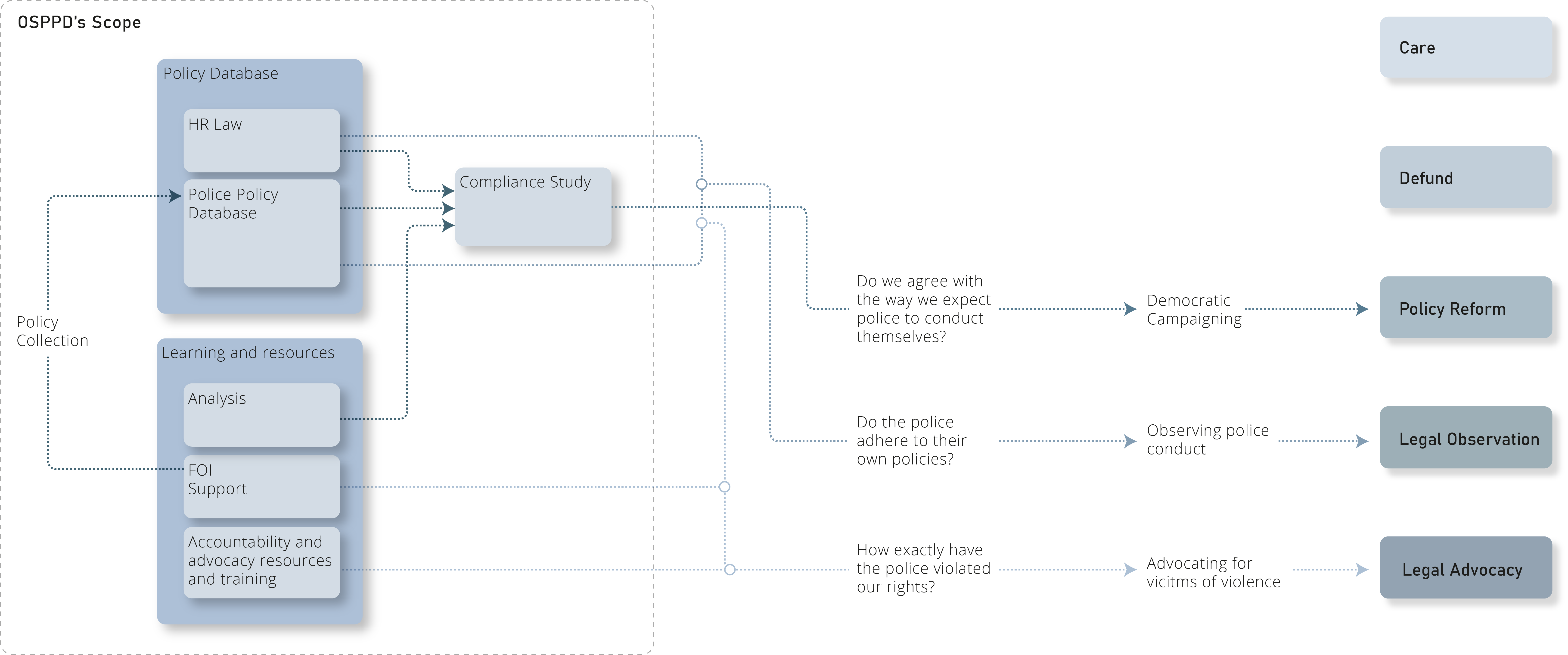Open Source Police Policy Database
Ongoing
Research
The Open-Source Police Policy Database (OSPPD) is an international open-source database that crowdsources police policy from concerned citizens and evaluates these policies compliance to international human rights law. The aim is not to hold policing accountable through legal avenues, but to give constituents perspective on their police force’s status quo of violence and to advocate for change democratically. The project builds upon several projects carried out by institutions and grassroots organisations, drawing on projects by Amnesty International, The University of Chicago Law School, The University of Pretoria’s Centre for Human Rights and Campaign Zero in particular. All projects, except for that of The University of Pretoria’s, focuses on Police policy in the USA. OSPPD aims to broaden the scope of this existing work to serve communities internationally using open-source means.


OSPPD aims to take research out of reports and into the hands of the general public in several ways:
Initial Development for OSPPD was funded by the Resourcing Racial Justice Fund
- Appealing for change through a democratic voice rather than an expert voice. By informing the public on the expectations of human rights law and whether their police meet those expectations it gives each police force’s constituents an informed decision on their police’s practices and asks if they consent to those standards. Police will have to answer to their constituents rather than external experts.
- By making complex information like human rights easy to understand and accessible to the public. This will give perspective to those who are normalised to a certain status quo of violence. This will offer information to those who are sitting on the fence on issues of police brutality.
- Empowering citizen investigators. It will teach the public skills that are necessary to carry out open-source investigations (OSINT) that can be applied in other investigations.
- Creating a platform for “amateur” researchers to work with “professional” researchers. “Professional” researchers (those who are paid to work on human rights) typically fall within a particularly privileged demographic, whereas “amateurs” tend to have lived experience of human rights violations, but the work comes at their own expense. This project aims to bridge that gap, to empower “amateurs” and create a space for “professionals” to reflect on their practice.
Initial Development for OSPPD was funded by the Resourcing Racial Justice Fund